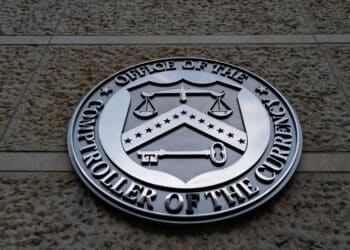$60 Million Hack Raises Questions About DAO’s Viability
 This morning, the US woke up to a financial meltdown. But not the kind you’d expect.
This morning, the US woke up to a financial meltdown. But not the kind you’d expect.
Early this morning, cryptocurrency exchange operators got urgent orders to halt trading activity on ethers, the cryptocurrency behind the blockchain platform Ethereum. The reason: nearly $60 million of ethers were hack (i.e. stolen). The hack has walloped the value of the crypocurrency.
Ethers are the second-most valuable cryptocurrency after bitcoins, and recently topped $20 an ether for the first time. With smart contracts being closely watched by the legal and insurance industries, the buzz around Ethereum has grown deafening.
But this morning Ethereum co-founder Vitalik Buterin asked crypocurrency exchange managers to halt trading activity in ether and via DAO — the distributed autonomous organization that has served as an investment vehicle of a kind for the ether-using community. The reason was an apparent hack that drained DAO of 3.6 million ethers as of right now, around $60 million at current exchange rates.
Buterin wrote in a post:
Even if no action is taken, the attacker will not be able to withdraw any ether at least for another ~27 days (the creation window for the child DAO). This is an issue that affects the DAO specifically; Ethereum itself is perfectly safe.

Following the news, the value of ethers dropped dramatically to under $13, from $21.50 right before the hack. As the trading of the currency paused, the ether drifted back up to $17. It is worth noting that since no money was spent on DAO, no money is actually “stolen” yet.
Buterin has proposed what is called a “soft fork” to fix the hack and restore the ethers that have been “stolen.” Essentially, this will virtually freeze the thief’s funds, followed by a “hard fork” approach, that will roll back all of the transactions that appeared after the hack was identified. He writes:
Miners and mining pools should resume allowing transactions as normal, wait for the soft fork code and stand ready to download and run it if they agree with this path forward for the Ethereum ecosystem. DAO token holders and ethereum users should sit tight and remain calm. Exchanges should feel safe in resuming trading ETH.
The development community is now divided on the right path to resolving the hack: some stand with Ethereum founder Buterin in backing the “soft fork,” others not. The “against” camp argues for an immediate hard-fork solution, with some even arguing for killing the DAO altogether, in the service of saving Ethereum. The heated debate was still raging at DAO’s Slack channel and on Twitter.
A soft-fork targeting single address/contract is a double-edged sword. Fixes this problem, but opens the door for future demands to repeat
— Andreas (aantonop Team) (@aantonop) June 17, 2016
Stephan Tual, the chief executive of Slock.it, a company that was instrumental in getting the DAO started, has confirmed over Slack that the DAO will in fact be winding down:
Yes, the DAO will be winded down completely and transformed into a simple contract where you can only withdraw. It’s shutting down, but as no ether was stole and no ether was spent, nothing was lost.
This end to DAO could not be confirmed. The story is still developing, but the debate raises an interesting question: in a meltdown, how decentralized is the Decentralised Autonomous Organisation?
https://twitter.com/BTCarchitect/status/743784501394956288
Whatever the final resolution, it will certainly set a precedent to the further developments of this $150 million crowdfunded experiment. It also offers a case study of what happens when a crytocurrency goes into freefall.











